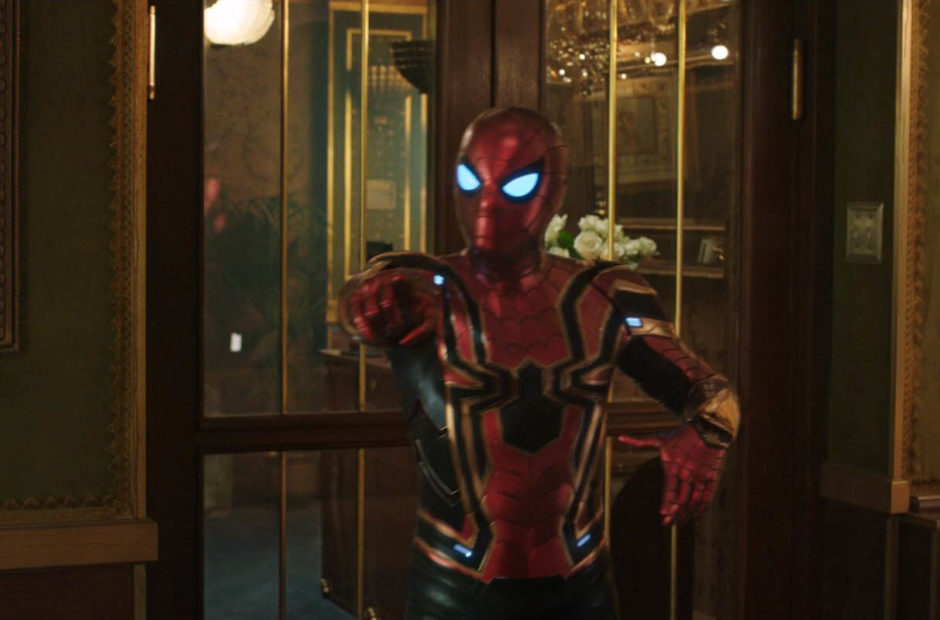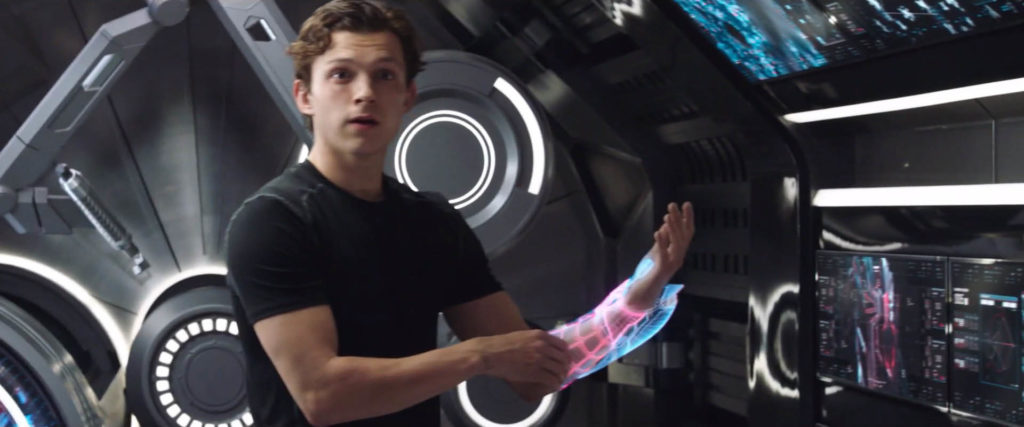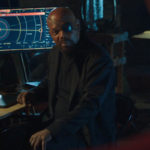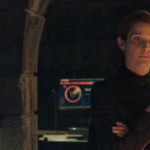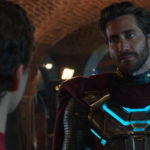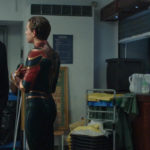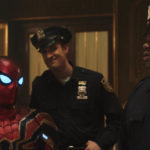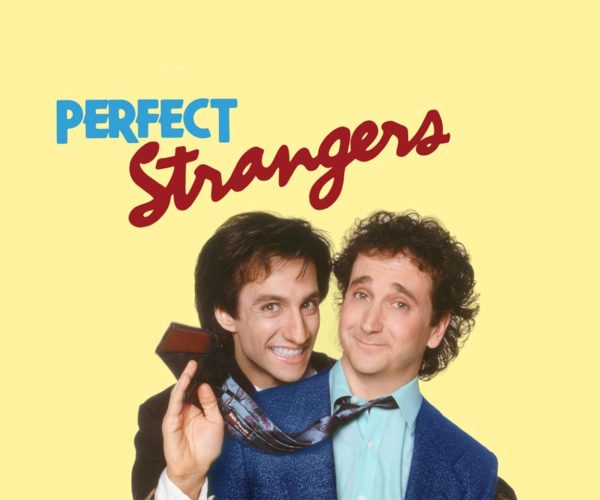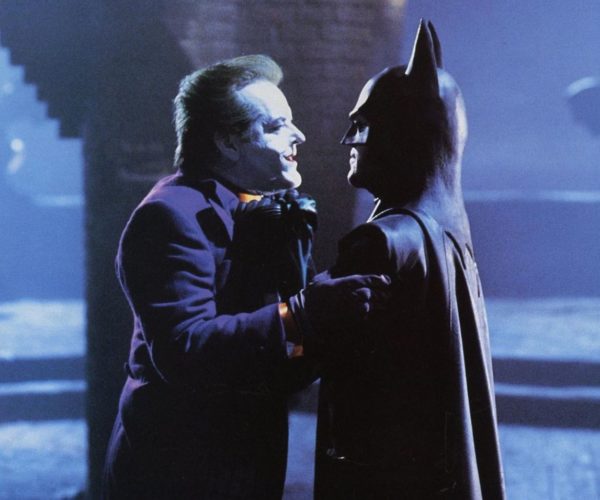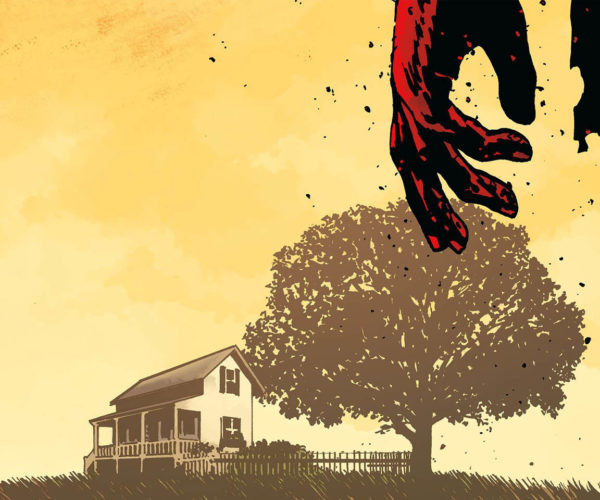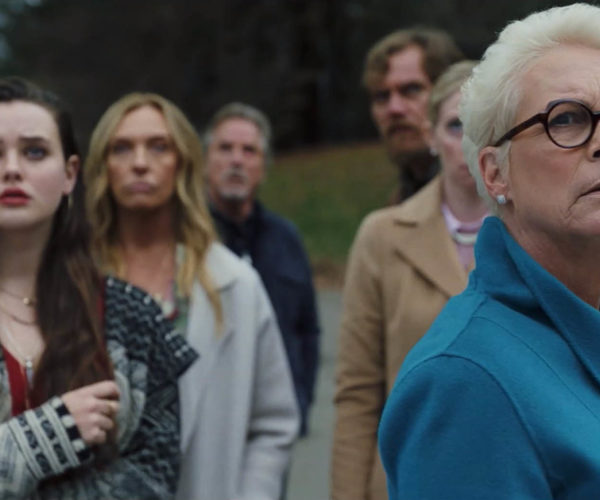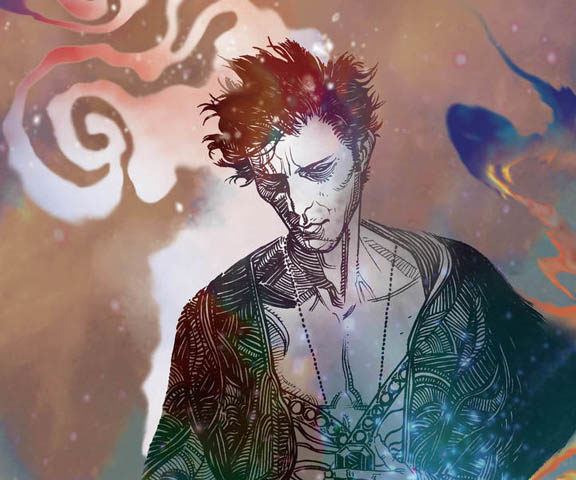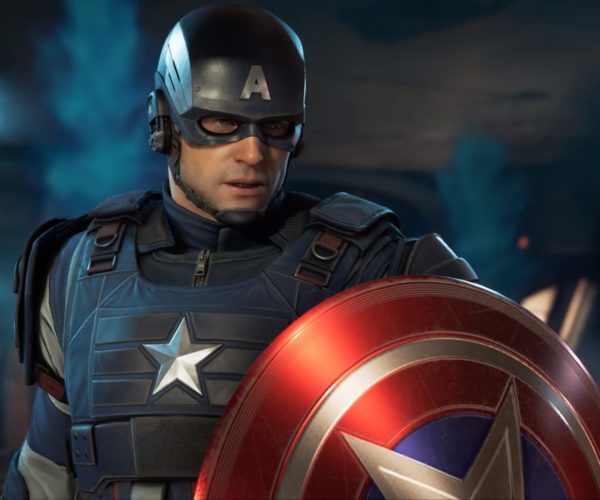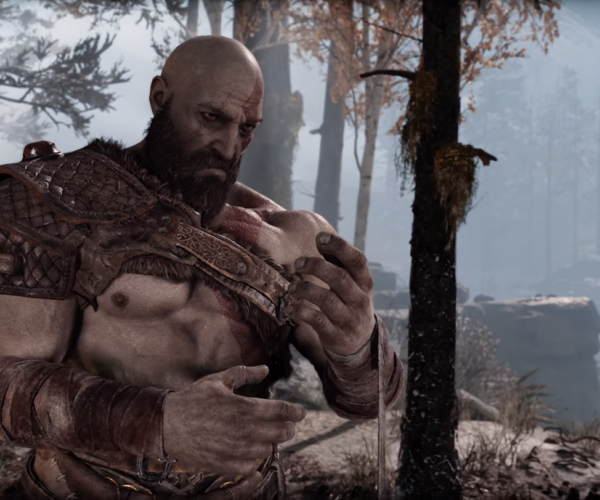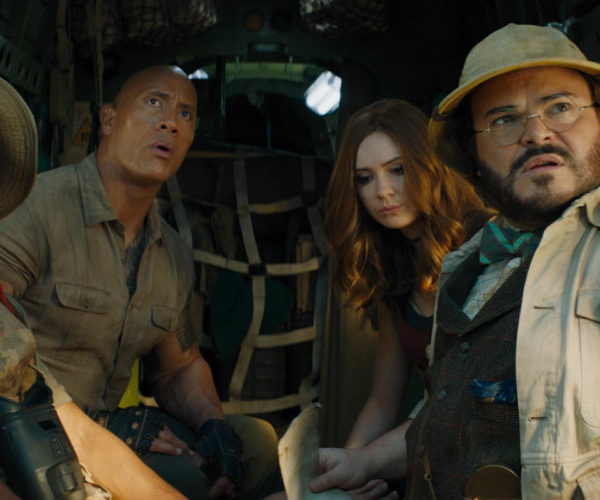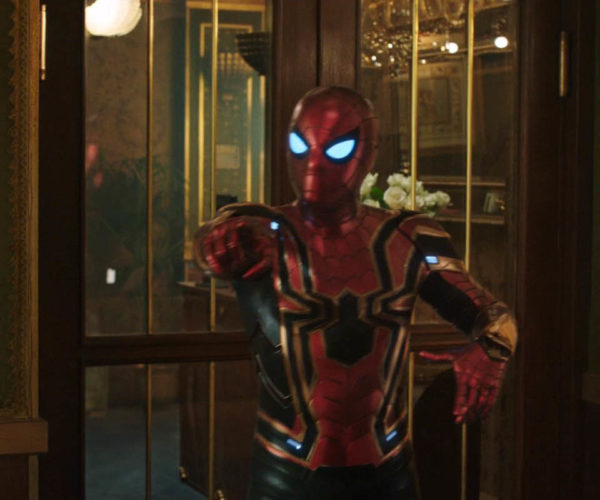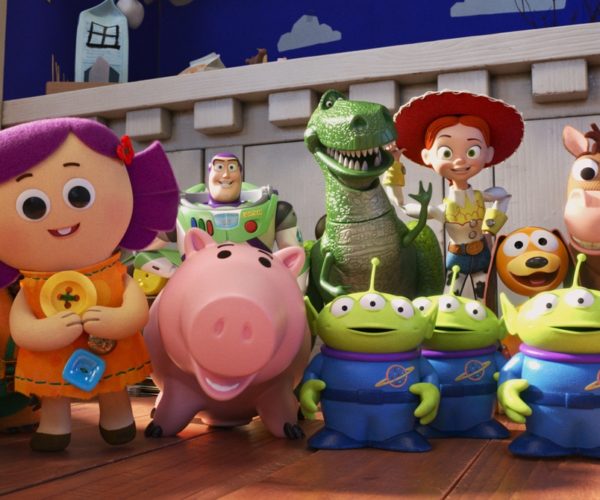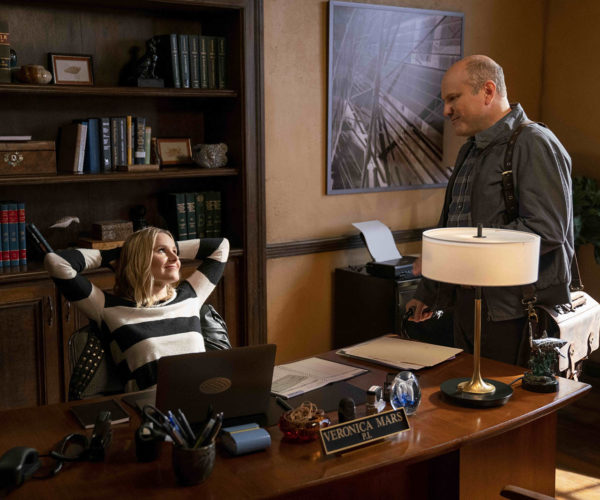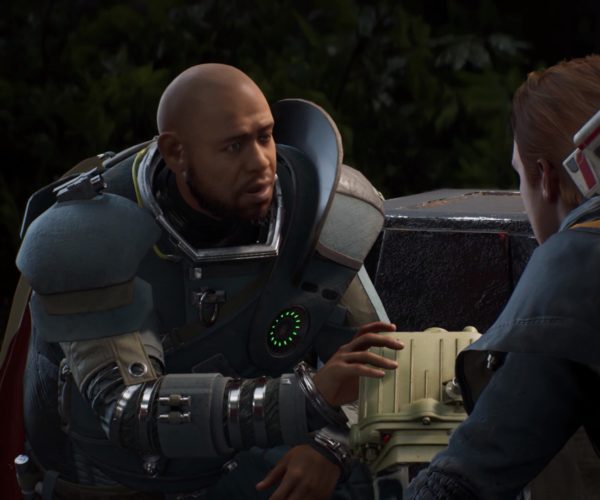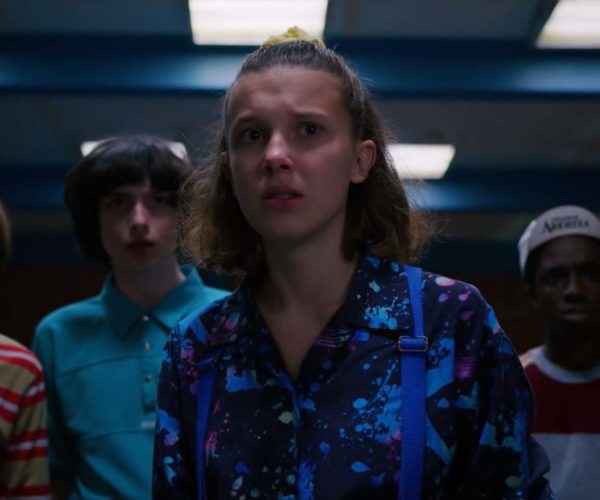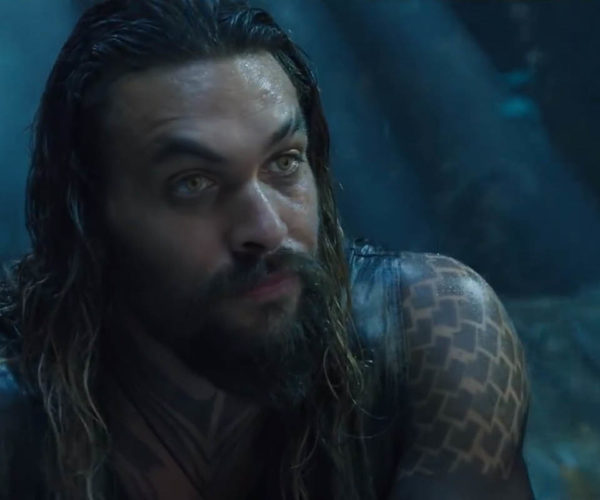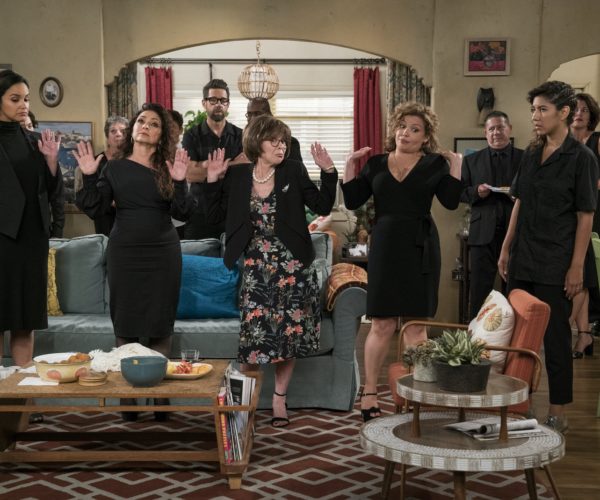To become a hero, first you have to understand what it means to be one. Then, you have to embrace it. If Spider-Man: Homecoming was the story of Peter grappling with the idea of being a hero, then Spider-Man: Far From Home is about him embracing it fully. Prepare for Avengers: Endgame spoilers and possible Far from Home spoilers.
Right out of the gate, Far From Home does a great job of connecting Spidey to the Marvel Cinematic Universe in ways that are informative and meaningful for the story and for Spidey himself. We pick up months after the Avengers saved the literal universe from Thanos’ grim determination, and as you might expect, people are still talking about it at every level. Peter’s Aunt May (Marissa Tomei) is hosting a fundraiser for those affected by the “blip” as New Yorkers seem to be calling it.
At Peter’s school, things are super weird; while Peter, Ned – conveniently – and many of the other feature students were blipped out of existence for five years, people kept growing, so you have a school full of people who were 16 years old in 2019 and 2024, and people who were just 10 or 11 years old back then, and it makes school weird. The movie gives us glimpses into the hijinks that can arise from the strange gap, too, when Flash Thompson is just inches away from sipping on champagne despite being 16. Do blippers need to get a stamp on their drivers’ licenses?
One of my favorite moments happens in the opening moments of the movie, when we get another one of the high school news program broadcasts, hosted by Betty Brant. If the Blu-ray disc has a few more of these, I’ll be thrilled. Both the editing and the comedic chops of the two actors make this scene stand out as a funny moment in a funny movie. A tribute to the Avengers that could be played straight for tears is imbued with the genuineness of teenagers with zero budget and a desire to do Real News, and it just works.
And then, despite the outcome of Avengers: Endgame, Tony Stark and Iron Man continue to loom large in Peter’s life; more so, perhaps. Peter knows the weight that Tony rested on his shoulders and feels it, but he can’t ask his mentor questions or get even a bit of reassurance. But the whole world – literally the whole world – knows about Tony’s sacrifice, and tributes to that sacrifice decorate walls and screens all over. Tony’s eyes are on Peter no matter where he goes, and I could almost see the burden pushing down on Peter throughout the movie.
As you might expect, that burden comes home to roost. Peter spent Homecoming chasing the idea of heroism like a dog bitten by a radioactive spider, to the degree that he made some dangerous mistakes and got himself into some bad situations. Now, with those red and gold hands bearing down on Peter, the young hero longs to go back to being a teenager. Being Spider-Man was supposed to be a vacation from being Peter Parker, not the other way around.
Tom Holland is my favorite Spider-Man. Despite loving the Spider-Man game on PlayStation 4 enough to play through it three times (and swinging back into it after Far from Home to check out the movie costumes!), I remember immediately missing Holland’s voice as I started the game. Holland is that teenage version of Spider-Man for me, now. Tobey Maguire and Andrew Garfield had their strong points (Maguire as Peter, Garfield as Spidey), but Holland delivers on both. He’s an awkward kid who finds his confidence behind the mask. I think about how Bruce Wayne is a mask for Batman, and then I think about how Peter Parker and Spider-Man are equal parts of the same person. They’re inseparable and they inform each other; Peter needs each one to make the other work. Holland makes it feel like we’re never watching one or the other – it’s clear that he’s put a ton of effort into this role.
The other big player is Jake Gyllenhaal‘s Quentin Beck, or Mysterio. It’s tough to get into Beck too much without potentially spoiling the movie for some viewers, so I’ll try to talk about him without spoiling the role he plays in Peter’s life and then get into the nitty-gritty with a proper warning.
Gyllenhaal has been hovering around the periphery of Marvel for a long time. In the early 2000s, he was on the shortlist to be Spider-Man, though that obviously never came to fruition. And it’s a good thing; with Tom Holland working so hard to make a great Spider-Man, Gyllenhaal comes in as a stellar Mysterio. Mysterio steps into Spider-Man’s life as a hero, a lone soldier from another earth in the multi-verse. Traditionally, though, Mysterio is a villain; and a second-rate one at that. He’s certainly not on the level of Doctor Octopus, Venom, or the Green Goblin. He’s closer to Vulture. A formidable foe for Spidey, but not one of the go-to legends.
And the same way that Keaton elevated Vulture into a memorable, complex character, Gyllenhaal takes Mysterio to the next level. His initial scenes are, actually, kind of dull. But it works, because it builds toward important moments between the two characters. The same way that Gyllenhaal has spoken effusively about Tom Holland in press junkets, Mysterio seems to have genuine respect for Spider-Man and Peter Parker, and seems to genuinely want to see him lead a happy life. It makes what follows that much more impactful.
And so it’s time to talk about spoilers. Skip past the image of Nick Fury if you don’t want to get spoiled, and just jump to the Conclusion section below.
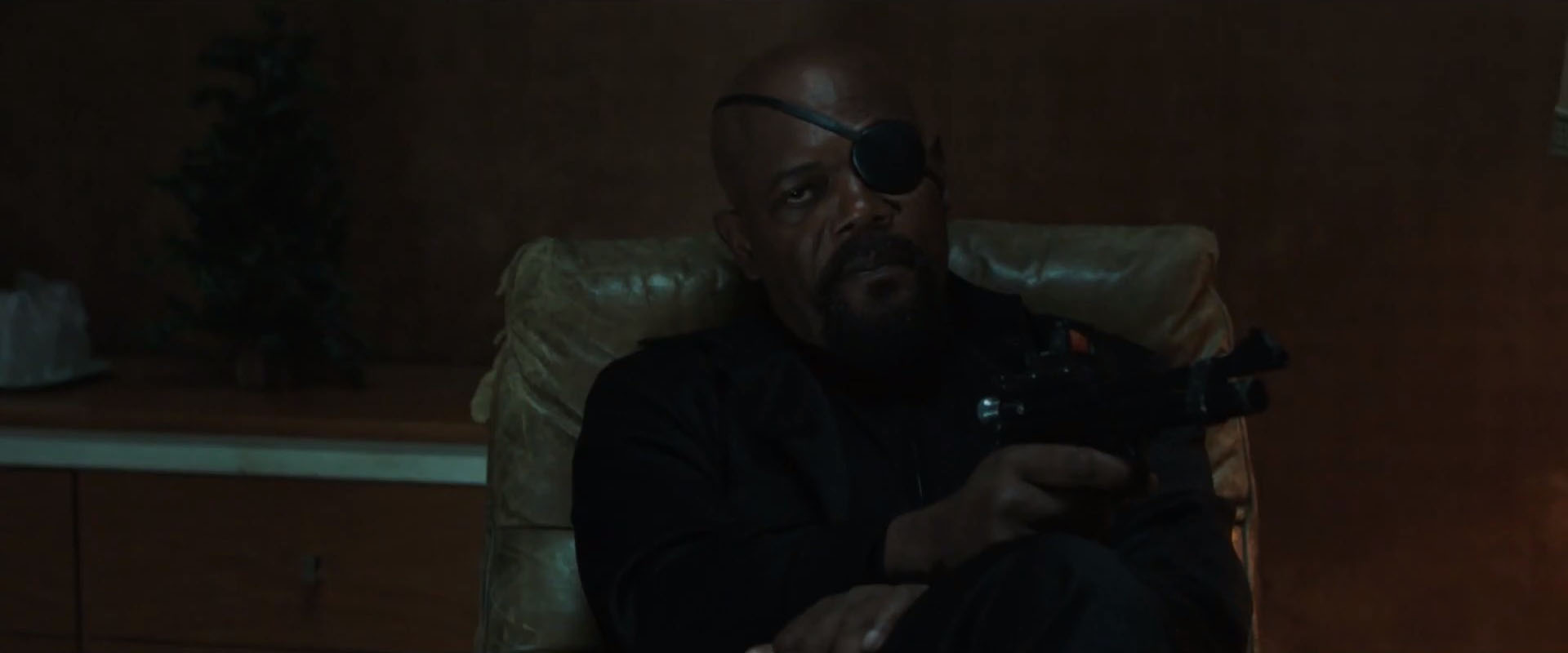
And that’s because, if you’ve read the comics or watched the Spider-Man cartoons, you know that Mysterio is a villain. He’s a top-tier illusionist who wants to prove himself as the greatest illusionist the world has ever seen. That toned down, serious, and almost stereotypical character Gyllenhaal plays in his first scenes is just that – a stereotype concocted by Quentin Beck, the bitter ex-employee of Stark Industries, a genius inventor who built the holographic therapy machine Tony re-lived some of his memories through in earlier films. Beck, along with a team of other ex-Stark scientists, has made Mysterio out of whole cloth with the dream of taking Stark’s place as Earth’s greatest hero by creating imaginary monsters for him to fight.
The first time we see Gyllenhaal switch from the sullen, scarred fictional Beck to the maniacal one, the pieces all come together; all the edgy characters Gyllenhaal has played and all the hero stereotypes we’re conditioned to look for. The movie plays with the latter by channeling them through the former.
If you don’t know who Mysterio is going into the movie but think from his prominent place in the ads that he might be the villain, then it seems like it might be a “corrupted hero” type of story, and the movie subverts that. If you do, you have the inkling that it’s all an illusion, and you get to watch him creating this hero character, setting up pieces that he’ll knock over – and it’s a blast to watch Gyllenhaal play the character with such gusto.
Conclusion
Spider-Man: Far from Home might be the most fully Spider-Man movie yet. It has everything a Spider-Man story should have. Peter spends more time tangling with responsibility than parroting lines from Uncle Ben. His responsibility weighs on him, and he sees the way it damages his relationships and endangers his friends, but he also hears the call all the same. The villain is as visually stunning as the hero. The over-the-top monsters (and Mysterio chasing them down) are a perfect visual match to Spider-Man’s acrobatics.
And even through all this, Peter’s life is never background to Spider-Man’s world. His friends and family are characters in their own right, and each one gets a moment to shine – even Flash Thompson, the bully/Spider-Man superfan, starts to take on a new dimension as he struggles to find his place after the blip.
And in becoming the most complete Spider-Man movie, I think Spider-Man: Far from Home is my favorite Spider-Man movie, too. It has the joy of swinging, the grounded seriousness of responsibility, and all the heart of Peter Parker – all in one film.
